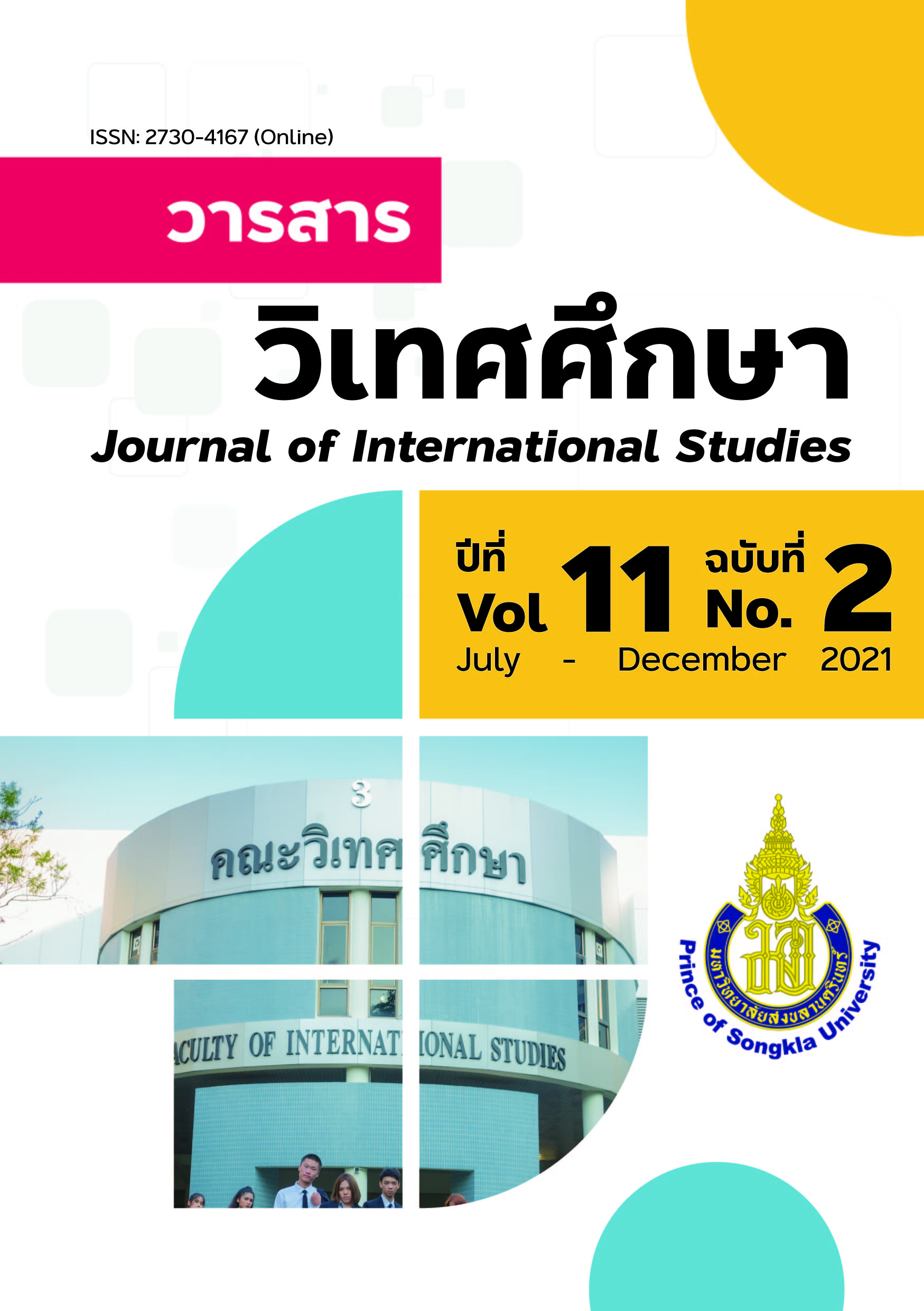The relationship between the Primary Activities of Value Chain and performance of Agriculture Sector Cooperatives and Farmer Groups in Thailand
Main Article Content
Abstract
The most previous researches preferred to measure the operational efficiency of large organizations. Hence, there has been an interesting issue on the efficiency measurement regarding the operation of agricultural cooperatives, which is a small organization. Thus, this research being aimed to study the primary activities of value chain management affecting agricultural cooperatives and farmer groups in Thailand was conducted by collecting information through questionnaire being completed by 27 sampling groups who were the agricultural cooperatives chairpersons or managers as well as outstanding and top ten farmers in their management. The statistics used for data analysis included frequency, percentage, mean, standard deviation and multiple regressions. The findings showed that the majority of primary activities had no effect towards the operational efficiency and competitiveness of the cooperatives and farmer groups. The reason could be because the sampling groups were members of small organizations that they paid less attention to the primary activities on value chain management. Instead, they focused on the services being affected to the operational efficiency because such services were immediate activities in approaching customers that they were considered a performance of the highest interest.
Article Details
Statements and opinions expressed in articles herein are those of the authors and do not necessarily reflect the position of the editors or publisher.
Article, information, text, image, etc. which are published in Journal of International Studies, belong to Journal of International Studies. If anybody or any organization would like to use part or whole of them, they must receive written permission from Journal of International Studies before usage.
References
กรมตรวจบัญชีสหกรณ์. (2556). สารสนเทศน่ารู้ทางการเงิน. ค้นเมื่อ 25 มกราคม 2563, จาก https://www.cad.go.th/more_ebook. php?EGID=19&filename=ebook
ขวัญฤทัย เทพพิทักษ์. (2559). การศึกษาห่วงโซ่คุณค่าที่ส่งผลต่อประสิทธิภาพในการ ประกอบธุรกิจส่งออกผลไม้แปรรูปของผู้ประกอบการไทยในตลาดโลก. สารนิพนธ์บริหารธุรกิจมหาบัณฑิต บัณฑิตวิทยาลัย, มหาวิทยาลัยกรุงเทพ.
จีราวัฒน์ มันทรา. (2563). การศึกษาศักยภาพในการแข่งขันของผู้ประกอบการ: กรณีศึกษา อุตสาหกรรมผ้าไหมใน อำเภอชนบท จังหวัดขอนแก่น. วารสาร มจร สังคมศาสตร์ปริทรรศน์, 16(3), 527-543.
ประสพชัย พสุนนท์, และพิทักษ์ ศิริวงศ์. (2556). ประสิทธิภาพและกุญแจแห่งความสำเร็จในการดำเนินการสหกรณ์การเกษตร: การศึกษาเพื่อสร้างทฤษฎีฐานราก. วารสาร Veridian E-Journal, Silpakorn University (มนุษยศาสตร์ สังคมศาสตร์ และศิลปะ), 6(1), 610-628.
เรวัตร ก่อวงศ์กาญจน์. (2562). วันสหกรณ์นักเรียน ปลูกฝังแนวคิดเพื่อสร้างสรรค์ทรัพยากรบุคคลเป็นกำลังพัฒนาสังคมไทย. ค้นเมื่อ 6 กุมภาพันธ์ 2563, จาก https://www.77kaoded.com/news/ rewatr/553266
วศิน เหลี่ยมปรีชา. (2557). ประสิทธิภาพการดำเนินงานกับบทบาทกระบวนการจัดการความรู้. วารสารมหาวิทยาลัยศิลปากร, 34(2), 81-107.
ศิริมาศ จินศิริวานิชย์. (2549). การศึกษาความสัมพันธ์ระหว่างกลยุทธ์การแข่งขันกิจกรรมภายในห่วงโซ่คุณค่าและผลการดำเนินงานของวิสาหกิจขนาดกลางและขนาดย่อม. วิทยานิพนธ์บริหารธุรกิจมหาบัณฑิต คณะพาณิชยศาสตร์และการบัญชี, จุฬาลงกรณ์มหาวิทยาลัย.
อนุชา ภูริพันธุ์ภิญโญ. (2560). การวิเคราะห์ประสิทธิภาพและปัจจัยที่มีผล ต่อประสิทธิภาพของสหกรณ์การเกษตรในเขตพื้นที่ภาคกลางตอนบนของประเทศไทย (รายงานผลการวิจัย). นนทบุรี: มหาวิทยาลัยสุโขทัยธรรมาธิราช.
อุบลวรรณ สุวรรณภูสิทธิ์, อดิลล่า พงศ์ยี่หล่า, และพาชิตชนัต ศิริพานิช. (2559). ความสัมพันธ์เชิงสาเหตุระหว่างการบริหารกิจกรรมพื้นฐานของห่วงโซ่คุณค่าและความสามารถเชิงนวัตกรรมกับผลการดําเนินงานของกิจการหนึ่งตําบลหนึ่งผลิตภัณฑ์ (โอทอป) กลุ่มเอในประเทศไทย. วารสารเทคโนโลยีอุตสาหกรรม มหาวิทยาลัยราชภัฏอุบลราชธานี, 6(2), 51-62.
Fawcett, S. E., Osterhaus, P., Magnan, G. M., Brau, J. C., & McCarter, M. W. (2007). Information sharing and supply chain performance: the role of connectivity and willingness. Supply Chain Management: An International Journal, 12(5), 358-368.
Porter, M. E. (1985). Competitive advantage: creating and sustaining superior performance. New York: The Free Press.
Rajaguru, R., & Matanda, M. J. (2019). Role of compatibility and supply chain process integration in facilitating supply chain capabilities and organizational performance. Supply Chain Management: An International Journal, 24(2), 301-316.
Yu, W., Jacobs, M. A., Salisbury, W. D., & Enns, H. (2013). The effects of supply chain integration on customer satisfaction and financial performance: An organizational learning perspective. International Journal of Production Economics, 146(1), 346-358.


